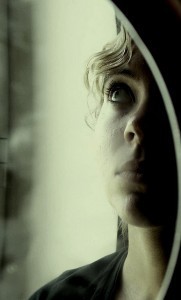Story Midpoint & Mirror Moment: Using Heroes’ Emotions To Transform Them
I recently read a Huff Post psychology piece on Turning Negative Emotions Into Your Greatest Advantage and immediately saw how this could also apply to our characters. Feel free to follow the link and read, but if you’re short on time, the rundown is this: negative emotions are not all bad. In fact, they are necessary to the human experience, and can spark a shift that leads to self growth.
And after reading James Scott Bell’s Write Your Novel From The Middle: A New Approach for Plotters, Pantsers and Everyone in Between and attending a full day workshop with him a few weeks ago, I can also see how this idea of using negative emotions to fuel a positive changes fits oh-so-nicely with Jim’s concept of “the Mirror Moment.”
and attending a full day workshop with him a few weeks ago, I can also see how this idea of using negative emotions to fuel a positive changes fits oh-so-nicely with Jim’s concept of “the Mirror Moment.”
But I’m getting ahead of myself. First, let’s look at what a mirror moment is.
 Mirror Moment: a moment in midpoint scene of a novel or screenplay when the character is forced to look within and reflect on who he is and who he must become in order to achieve his goal. If he decides to continue on as he always has, he will surely fail (tragedy).
Mirror Moment: a moment in midpoint scene of a novel or screenplay when the character is forced to look within and reflect on who he is and who he must become in order to achieve his goal. If he decides to continue on as he always has, he will surely fail (tragedy).
If the story is not a tragedy, the hero realizes he must either a) become stronger to overcome the odds or b) transform, shedding his biggest flaws and become more open-minded to new ideas and beliefs. One way or the other, he must better himself in some way to step onto the path which will lead to success.
Jim actually describes the Mirror Moment so much better than I can HERE, but do your writing a BIG FAVOR and also snag a copy of this book. (It’s a short read and will absolutely help you strengthen the character’s arc in your story!)
To see how the two tie together, let’s explore what leads to this essential “mirror moment.” Your hero is taking stock of his situation, realizing he has two choices: stubbornly continue on unchanged and hope for the best, or move forward differently, becoming something more.
The big question: what is the catalyst? What causes him to take stock of the situation? What causes his self-reflection?
The answer is not surprising: EMOTION. Something the character FEELS causes him to stop, look within, and make a choice.
Let’s assume this isn’t a tragedy. If this moment had a math formula, it would look something like this:
Emotion + look within = change
So what type of emotions are the best fit to encourage this necessary shift toward change? And are they positive emotions, or negative ones? Let’s experiment!
Common positive emotions, taken right from The Emotion Thesaurus:
Happiness + look within
Happiness is contentment, a feeling of extreme well being. If one feels good about themselves and where they are at, it doesn’t encourage a strong desire for change, does it?
Gratitude + a look within
 Gratitude is thankfulness, an appreciation for others and what one has. Because again, gratitude creates contentment, feeling “full” and thankful, it doesn’t make the best catalyst for change. However, if you were to pair it with something like relief (such as being given a second chance), then gratitude over being spared something negative could lead to resolving to change.
Gratitude is thankfulness, an appreciation for others and what one has. Because again, gratitude creates contentment, feeling “full” and thankful, it doesn’t make the best catalyst for change. However, if you were to pair it with something like relief (such as being given a second chance), then gratitude over being spared something negative could lead to resolving to change.
Excitement + a look within
Excitement is the feeling of being energized to the point one feels compelled to act. On the outside, this looks like a good candidate for change, but it depends on the type of excitement. Is the “high” a character feels something that distracts them from self reflection (such as being caught up in the experience of a rock concert) or does it inspire (such as the thrill of meeting one’s sports hero in person)? If one’s excitement propels one to want to become something better, then change can be achieved.
Satisfaction + a look within
Satisfaction is a feeling of contentment in a nutshell. It is feeling whole and complete. As such, looking within while satisfied likely won’t lead to a desire to change anything–in fact it might do just the opposite: encourage the character to remain the same.
Common negative emotions, again right from The Emotion Thesaurus:
Fear + a look within
Fear is the expectation of threat or danger. Feeling afraid is very uncomfortable, something almost all people wish to avoid. Some even try to make deals with the powers that be, so deep is their desperation: if I win this hand, I’ll give up gambling, I swear. So, combining this emotion with some self reflection could definitely create the desire to change.
Frustration + a look within
 Feeling stymied or hemmed in is something all people are familiar with and few can tolerate for long. By its very nature, frustration sends the brain on a search for change: how can I fix this? How can I become better/more skilled/adapt? How can I succeed?
Feeling stymied or hemmed in is something all people are familiar with and few can tolerate for long. By its very nature, frustration sends the brain on a search for change: how can I fix this? How can I become better/more skilled/adapt? How can I succeed?
Characters who are frustrated are eager to look within for answers.
Embarrassment + a look within
Embarrassment is another emotion that is very adept at making characters uncomfortable. Self-conscious discomfort is something all usually avoid because it triggers vulnerability. When one feels embarrassed, it is easy to look within and feel the desire to make a change so this experience is not repeated.
Shame + a look within
Disgrace isn’t pretty. When a person knows they have done something improper or dishonorable, it hurts. Shame creates the desire to rewind the clock so one can make a different choice or decision that does not lead to this same situation. It allows the character to focus on their shortcomings without rose-colored glasses, and fast tracks a deep need for change.
* ~ * ~ *
These are only a sampling of emotions, but the exercise above suggests it might be easier to bring about this mirror moment through negative emotions. But, does this mean all positive emotions don’t lead to change while all negative ones do? Not at all!
Love + a look within could create a desire to become more worthy in the eyes of loved ones. And emotions such as Denial or Contempt, while negative, both resist the idea of change. Denial + a look within, simply because one is not yet in a place where they can see truth. Contempt + a look within, because one is focused on the faults of others, not on one’s own possible shortcomings. Overall however, negative emotions seem to be the ones best suited to lead to that mirror moment and epiphany that one must change or become stronger and more skilled in order to succeed.
 So there you have it–when you’re working on this critical moment in your story when your character realizes change is needed, think carefully about which emotion might best lead to this necessary internal reflection and change.
So there you have it–when you’re working on this critical moment in your story when your character realizes change is needed, think carefully about which emotion might best lead to this necessary internal reflection and change.
(And of course, we profile 75 emotions in The Emotion Thesaurus: a Writer’s Guide to Character Expression, so that’s just one more way for you to use it!)
photo credit 1: Dhinal Chheda via photopin cc
photo credit 2: nowhere Zen New Jersey via photopin cc
photo credit 3: stephcarter via photopin cc
The post Story Midpoint & Mirror Moment: Using Heroes’ Emotions To Transform Them appeared first on WRITERS HELPING WRITERS.
Writers Helping Writers
- Angela Ackerman's profile
- 1022 followers



